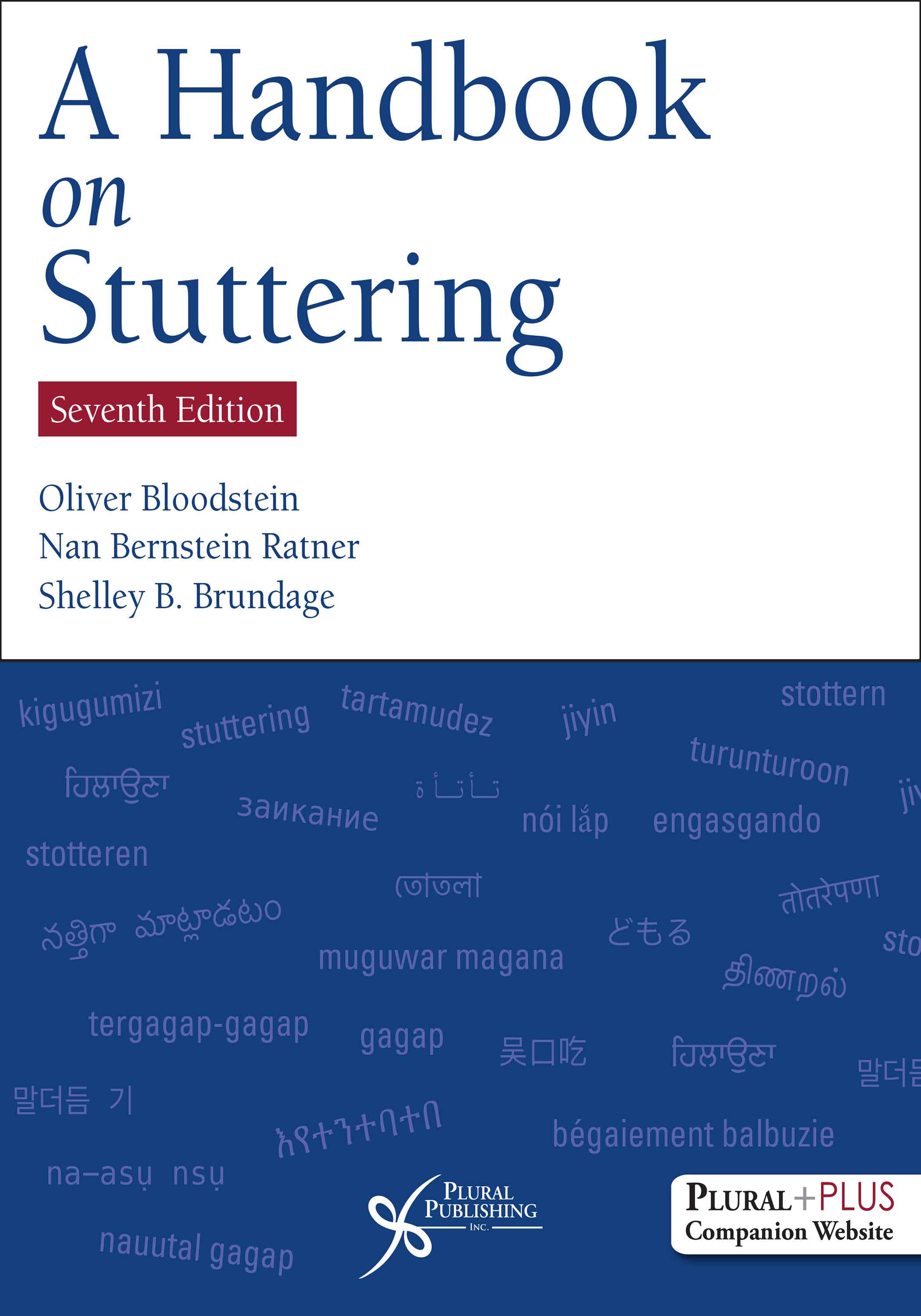
A Handbook on Stuttering
Seventh Edition
Oliver Bloodstein, Nan Bernstein Ratner, Shelley B. Brundage
Details: 581 pages, B&W, Hardcover, 8.5" x 11"
ISBN13: 978-1-63550-317-3
© 2021 | Available
For Instructors
Purchase
The revised edition of A Handbook on Stuttering continues its remarkable role as the authoritative, first-line resource for researchers and clinicians who work in the field of fluency and stuttering. Now in its seventh edition, this unique book goes beyond merely updating the text to include coverage of roughly 1,000 articles related to stuttering research and practice that have been published since 2008. This extended coverage integrates the more traditional body of research with evolving views of stuttering as a multi-factorial, dynamic disorder.
Comprehensive, clear, and accurate, this text provides evidence-based, practical information critical to understanding stuttering. By thoroughly examining the intricacies of the disorder, A Handbook on Stuttering, Seventh Edition lays the foundation needed before considering assessment and treatment.
New to the Seventh Edition
- A completely reorganized table of contents, including two new chapters.
- The deletion of approximately 1,000 non-peer-reviewed references from the previous edition to assure discussion of the highest quality evidence on stuttering.
- New content on the development of stuttering across the lifespan and assessment.
- Given the Handbook’s historic role as a primary reference for allied professionals, a new chapter that addresses myths and misconceptions about stuttering
- Expanded coverage on the role of temperament in childhood stuttering
- Expanded coverage of brain-based research, genetics, and treatment findings.
- A thoroughly updated chapter on conditions under which stuttering fluctuates
- Brief tutorial overviews of critical concepts in genetics, neuroimaging, language analysis and other relevant constructs, to better enable reader appreciation of research findings.
- A greater selection of conceptual illustrations of basic concepts and findings than in prior editions
- Integrated cross-referencing to content across chapters
- A PluralPlus companion website showing the deleted content from the previous edition
Reviews
“…The purpose of this book is to help others understand the nature of stuttering and better utilize the information we now have available to us… This handbook provides an initial broad review, and then goes on to highlight the variables that influence fluency in children and adults throughout their lives.
This book is meant for people of many clinical fields, as well as for those who stutter and their families across the lifespan. It is detail oriented and provides a wide variety of information that people who stutter can learn and benefit from.
One area that is different from other clinical books is Section III Number 12: Myths & Mysteries about Stuttering. This is a new section and the authors have gone to great lengths to describe the myths and mysteries related to stuttering. …
Overall, I recommend this book to every speech-language pathologist and graduate student who is working with people who stutter. The sections on assessment and treatment are very thorough, and the authors recommend many new assessment tools and therapy materials that are available today. …”
–Lorelei J. Peirson, MA, Biola University, in Doody’s Reviews (February 2022)
“…This book shows that stuttering is not some indomitable, mythical beast but a penetrable disorder, albeit ‘multi-factorial,’ that has been scrupulously studied for decades.
Through not only presenting the most up-to-date and accurate research on stuttering but also synthesizing it in a cohesive and thought provoking manner, the authors arm the reader with a unique and accessible guide. Contrary to previous editions, …, Ratner and Brundage go beyond strict chronology and reorder chapters to answer the questions ‘people tent to twant answered before others.’ They also add two chapters – one addressing pressing facts about stuttering (Chapter 12) and one on assessment (Chapter 13) – unprecedented in the history of the Handbook. The effect is that clinicians along with those who stutter have direct, easy access to succinct information about the speech disorder.
This edition preserves Oliver Bloodstein’s characteristic ability to convey a working knowledge of stuttering and bequeaths his resolve in the field to the next generation. By guiding the reader through research on stuttering, from old to the new, the Handbook shows how we came to know what we know and imparts a nuanced and motivating understanding of stuttering. In other words, we are dealing with an expansive yet reliable and steady foundation of knowledge rather than a fire hose that people can effectively learn from and in turn practically use to further advance knowledge about stuttering. A book is special when it’s likely to help inspire the very articles that will feature in its next edition.”
–Edward Shvets in The Stuttering Foundation Magazine (Spring 2022)
“…Moreover, the writing style of the 7th edition is clear, concise, and in general, easy to follow, even for people with English as a second language. I have learned a few new words like ‘whopper’ (page 19). Reading the Handbook sometimes felt like reading an exciting novel, meant as a huge compliment to the authors. The authors often compare their conclusions with the previous edition, which is very helpful. When the authors use the expression ‘across the globe’, I wonder whether they appear to refer to the USA and a few other parts of the world like Western-Europe, Turkey, and Australia. In general, the tone of the book is slightly more personal compared to the previous edition. The authors do a great job in presenting the facts, and scattered throughout the book, they add their personal perspectives.
… In conclusion, I have found my journey through the Handbook very informative and useful. I am convinced this new edition will continue to serve as a very important resource of information on the very broad topic of stuttering, over the coming years, for speech-language pathologists and researchers alike. The hard work of the authors to present a comprehensive, up to date edition is highly appreciated… This new, seventh edition will be a very helpful, important, inspiring resource for the whole field of speech-language pathology.”
–Marie-Christine Franken, Erasmus University Medical Center, from the Journal of Fluency Disorders (2022)
“…the 7th edition continues to uphold the book’s reputation as a preeminent source for information about past and present stuttering research.
… As with its previous editions, the 7th edition of A Handbook on Stuttering offers researchers, clinicians, and others professionals who have a strong interest in stuttering comprehensive reviews of what seems like every conceivable aspect of stuttering that has been studied scientifically. Across the chapters, readers will appreciate the authors’ _ability to effectively blend background/tutorial information, historical/contextual information, objective and balanced research reporting, side commentary, and summative/interpretative statements – _characteristics that have led to the book’s reputation as a primary authoritative source for information on stuttering for over 50 years. And, whether one is taking a “deep dive” _into the book or simply wading into some of its chapters, readers are also likely to come away from the book with a sense of respect and appreciation for the multitude of researchers throughout the world who have devoted significant portions of their lives toward helping people who stutter by constructing a more complete and accurate understanding of stuttering and its assessment and treatment.”
–Kenneth J. Logan, University of Florida, from the Journal of Fluency Disorders (2022)
Foreword
Preface
About the Authors
Reviewers
Acknowledgements
Section I. Understanding the Nature of Stuttering
Chapter 1. Defining and Describing Stuttering
Chapter 2. The Demography of Stuttering: Across the Life Span, Families, and Communities
Chapter 3. Early Childhood Disfluency and Stuttering Onset
Chapter 4. Developmental, Medical, Familial, and Educational History of PWS, and the Social and Vocational Impacts of Stuttering
Chapter 5. Theories and Models of Stuttering
Section II. The Quest for Underlying Mechanisms
Chapter 6. Central Neurological Findings
Chapter 7. Motor and Sensory Abilities
Chapter 8. Anticipation, Anxiety, and Stuttering
Chapter 9. Personality and Temperament
Chapter 10. Cognitive and Linguistic Abilities
Section III. Assessment and Treatment of Stuttering
Chapter 11. Conditions Under Which Stuttering Fluctuates
Chapter 12. Myths and Mysteries about Stuttering
Chapter 13. Assessment of Stuttering
Chapter 14. Treatment
References
Index
Purchase of A Handbook of Stuttering, Seventh Edition comes with access to supplementary materials on a PluralPlus companion website.
To access the materials, you must register on the companion website and log in using the access code printed in the inside front cover of your book.
*Note: If you have purchased this book used or have rented it, your access code will not work if it was already redeemed by the original buyer of the book. Plural Publishing does not offer replacement access codes for used or rented books.
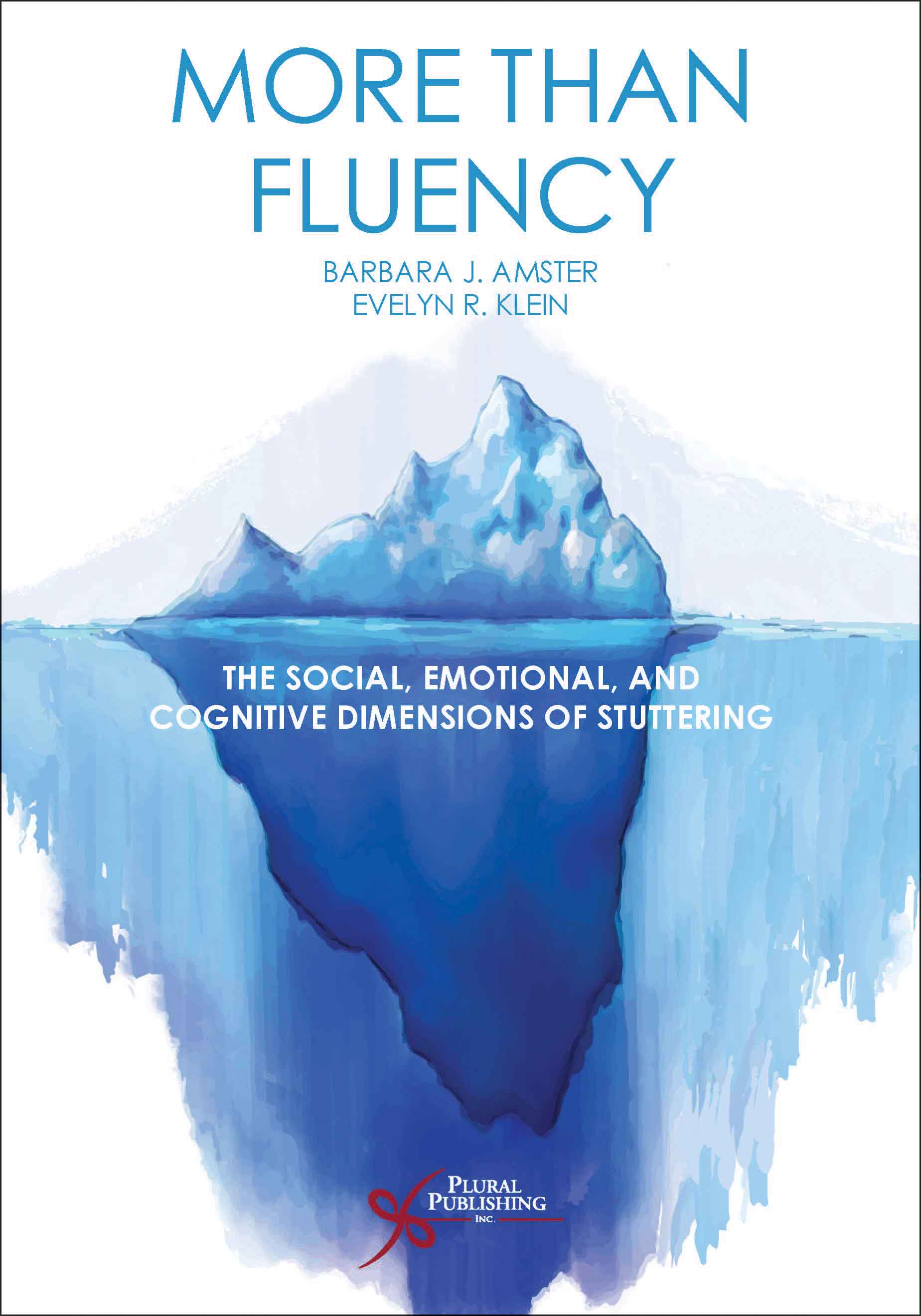
More Than Fluency: The Social, Emotional, and Cognitive Dimensions of Stuttering
First Edition
Barbara J. Amster, Evelyn R. Klein
Details: 242 pages, B&W, Softcover, 7" x 10"
ISBN13: 978-1-59756-995-8
© 2018 | Available
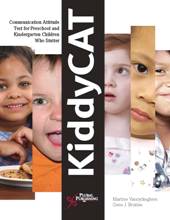
KiddyCAT Communication Attitude Test for Preschool and Kindergarten Children Who Stutter
First Edition
Martine Vanryckeghem, Gene J. Brutten
Details: 28 pages, Print, B&W, Softcover, 8.5" x 11"
ISBN13: 978-1-59756-117-4
© 2007 | Available
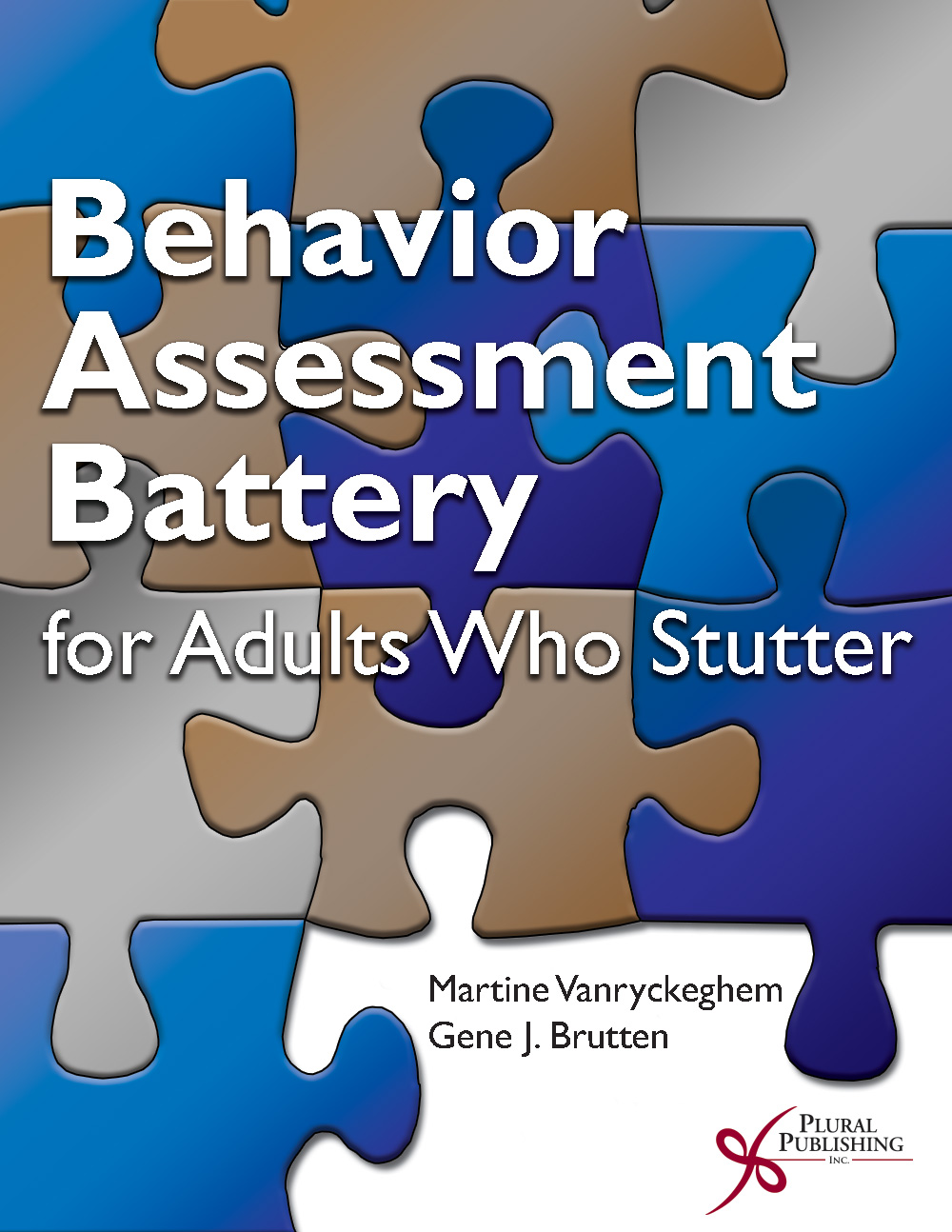
Behavior Assessment Battery for Adults Who Stutter (Online Access)
First Edition
Martine Vanryckeghem, Gene J. Brutten
Details: Online Access
ISBN13: 978-1-59756-901-9
© 2018 | Available
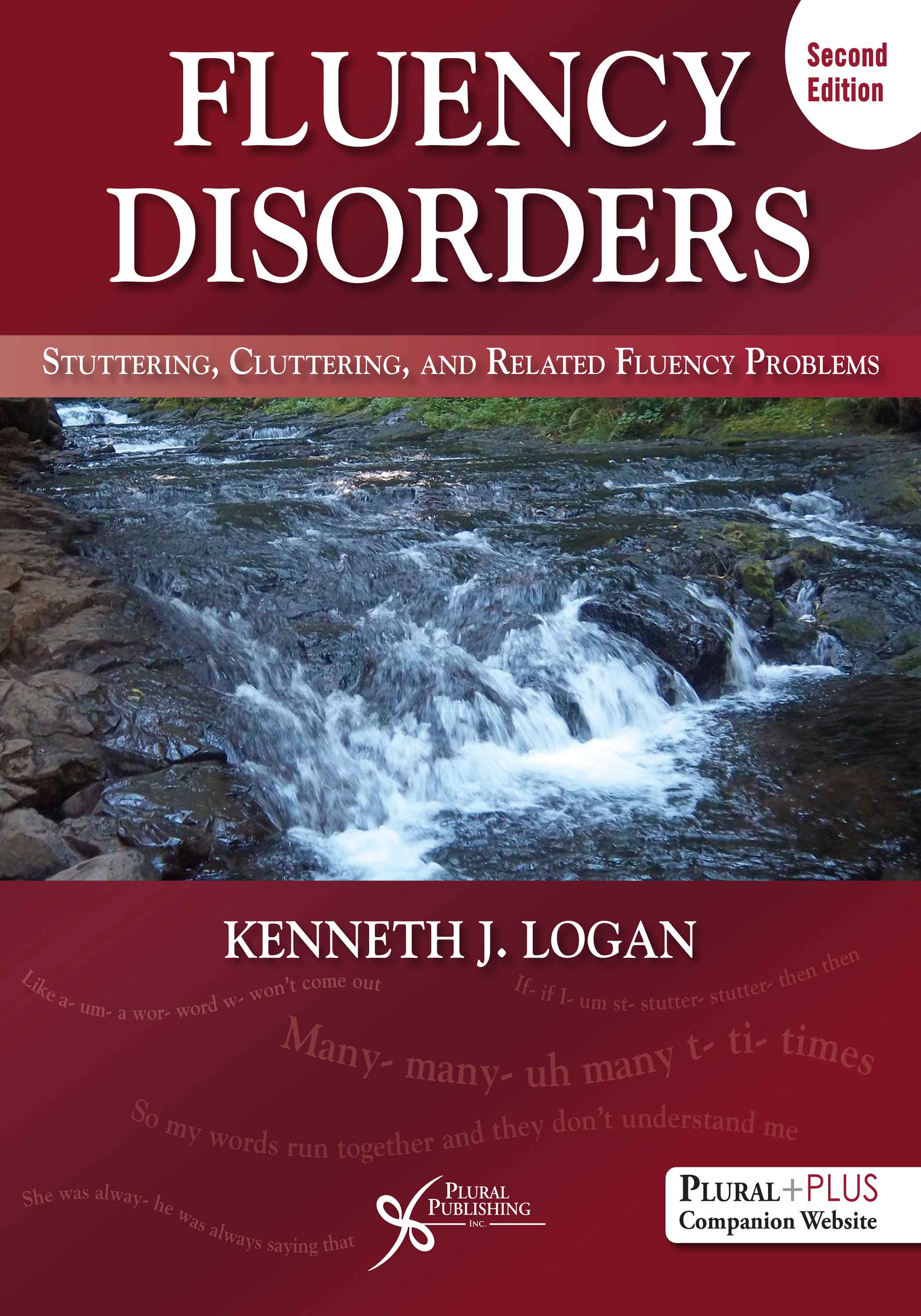
Fluency Disorders: Stuttering, Cluttering, and Related Fluency Problems
Second Edition
Kenneth J. Logan
Details: 609 pages, B&W, Softcover, 8.5"x11"
ISBN13: 978-1-63550-147-6
© 2022 | Available
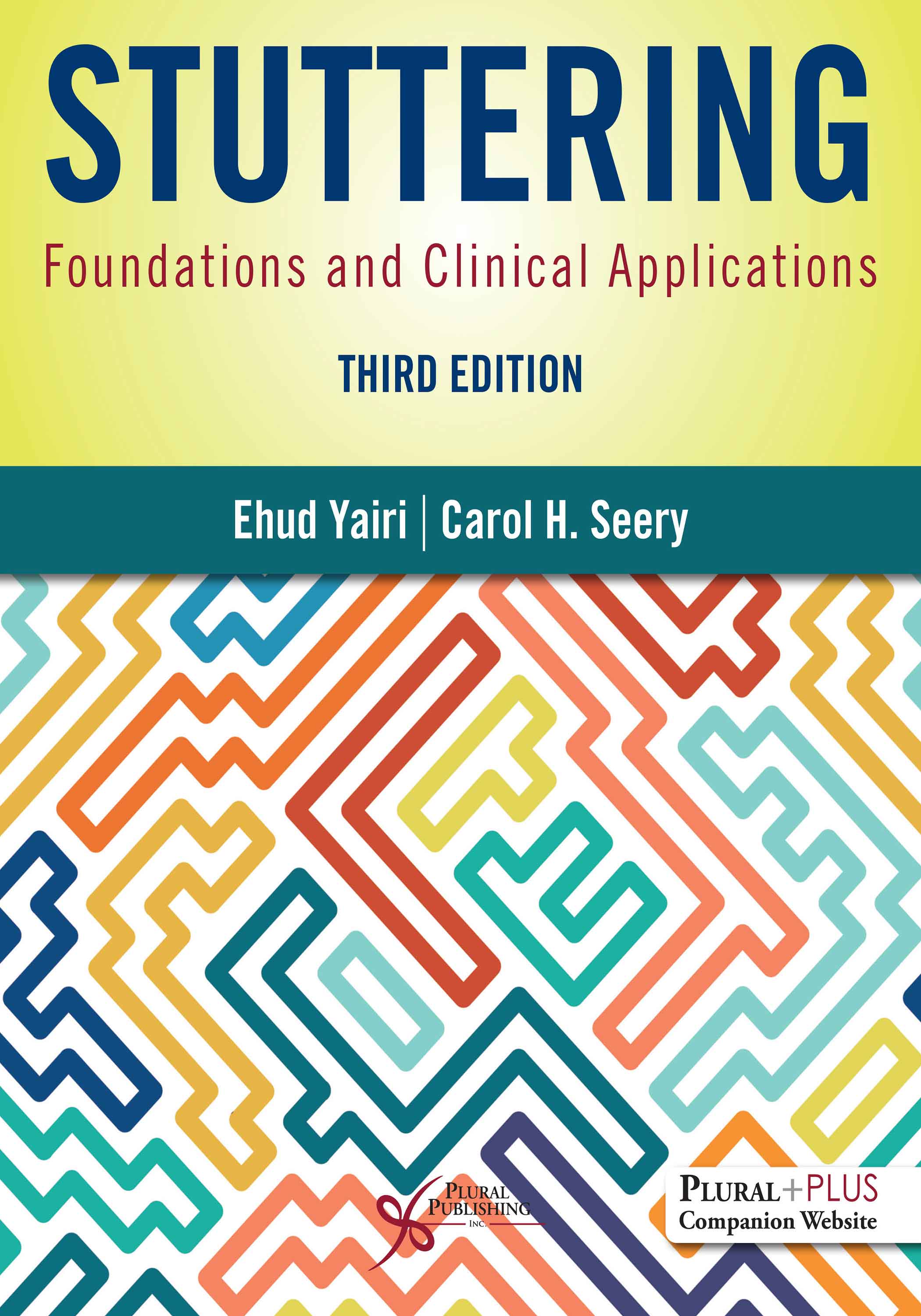
Stuttering: Foundations and Clinical Applications.
Third Edition
Ehud Yairi, Carol H. Seery
Details: 465 pages, B&W, Softcover, 8.5" x 11"
ISBN13: 978-1-63550-355-5
© 2023 | Available
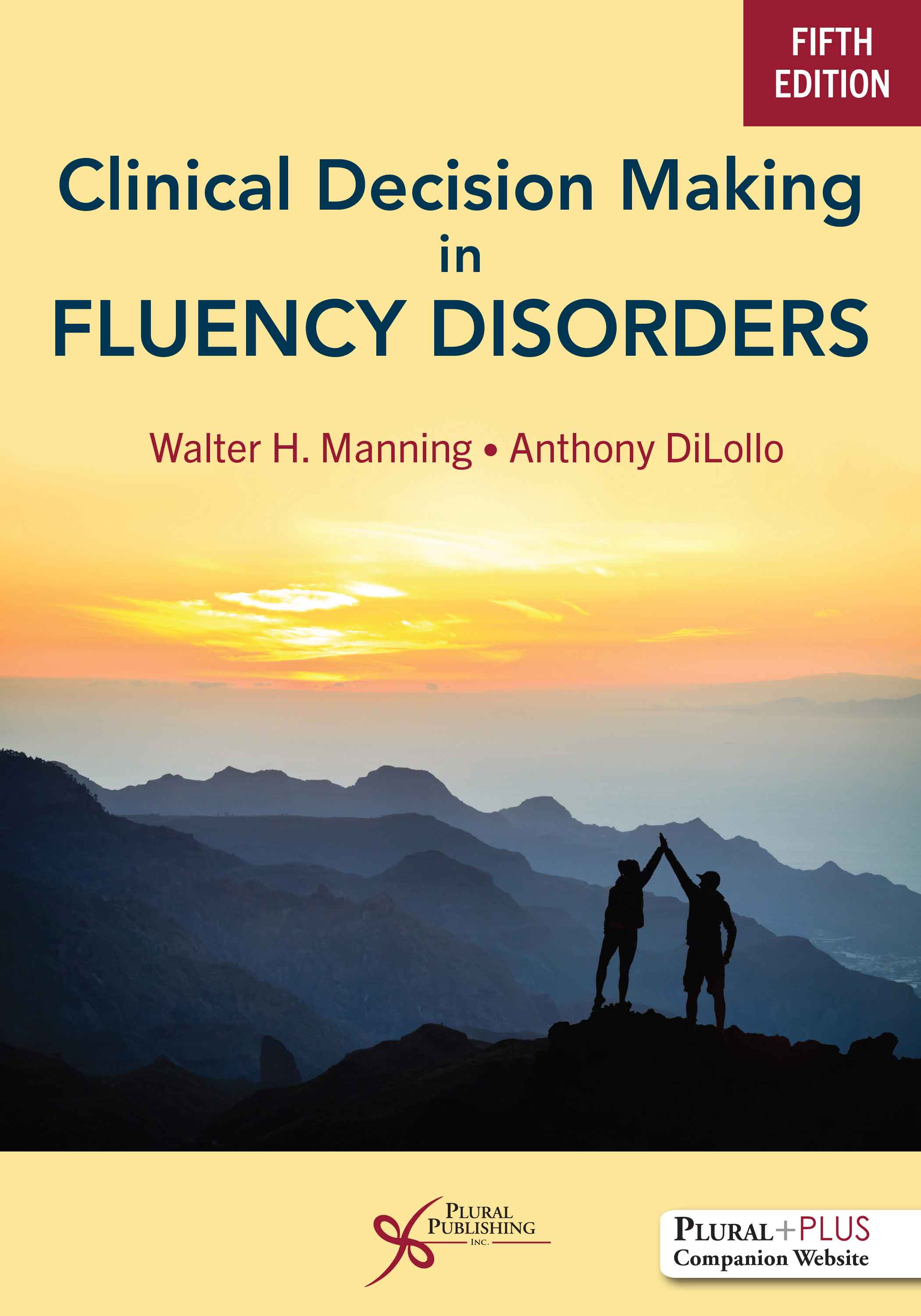
Clinical Decision Making in Fluency Disorders
Fifth Edition
Walter H. Manning, Anthony DiLollo
Details: 580 pages, 2-Color, Softcover, 7" x 10"
ISBN13: 978-1-63550-633-4
© 2025 | Available
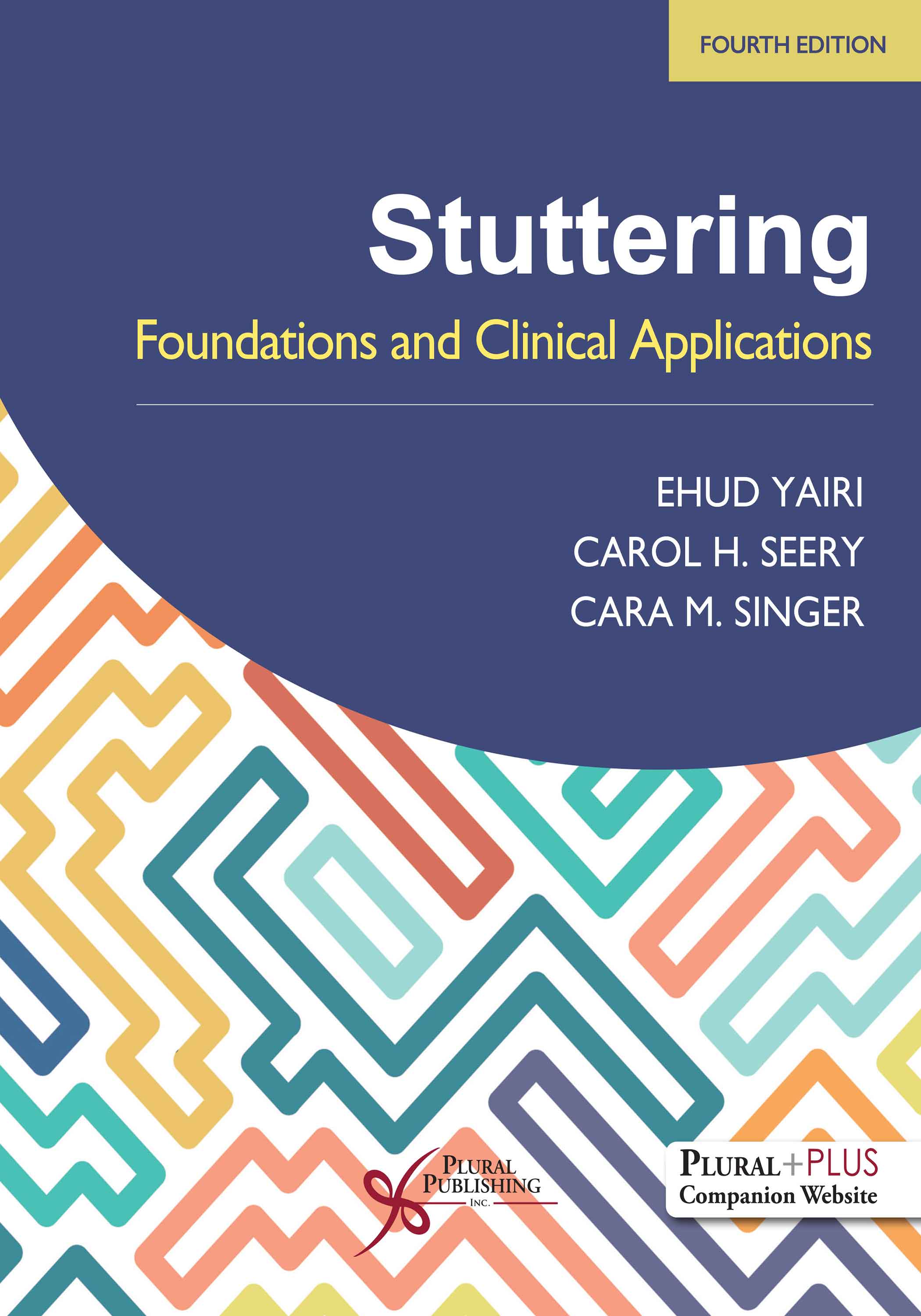
Stuttering: Foundations and Clinical Applications
Fourth Edition
Ehud Yairi, Carol H. Seery, Cara M. Singer
Details: 441 pages, B&W, Softcover, 8.5" x 11"
ISBN13: 978-1-63550-774-4
© 2027 | Available


